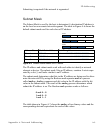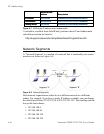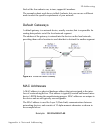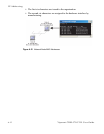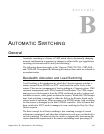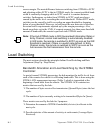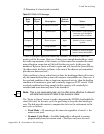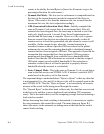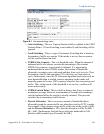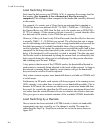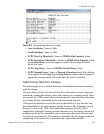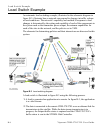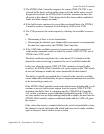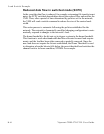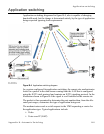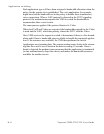
Appendix B - Automatic Switching B-5
Load Switching
Table B-2
Figure B-1
Hub autoswitching menu
• Auto Switching - This is a Vipersat Feature which is enabled in the CDM
Features Menu. If Auto Switching is not enabled, Load Switching will be
ignored.
• Load Switching - This is a type of Automatic Switching that is based on
the amount of traffic at a remote. If this mode is not set, then no remote
will be switched based on load.
• STDMA Slot Capacity - This is a threshold value. When the amount of
outbound traffic at a remote exceeds this percentage of the current
STDMA slot capacity, a load switch is initiated. It is important to
understand that in most STDMA modes, the amount of bandwidth
allocated to a remote varies with need and thus from cycle to cycle. Thus
the amount of traffic that constitutes X% will also vary from cycle to
cycle. Furthermore, since the D2 allocation algorithm tends to provide no
more bandwidth than is needed, remotes operating in this mode will
normally appear to be near 100% capacity whenever they are passing real
traffic. Thus, in this mode, if the threshold is set too low, switches will
occur unnecessarily.
• STDMA Switch Delay- This is a built in latency that forces a remote to
maintain an average load over some number of seconds after reaching a
switch condition before the switch is actually initiated. This prevents
switches due to momentary traffic-bursts.
• Percent Allocation - This is an excess amount of bandwidth that is
allocated beyond the current traffic rate when the switch to SCPC is made.
For example, if the current average traffic at the time of the switch is 60K,
and the Percent Allocation is 10%, then the allocation will be for 60K +
6K = 66K. (Furthermore, the hub always allocates bandwidth in 16K
blocks so 66K rounded up will actually be 80K.)



